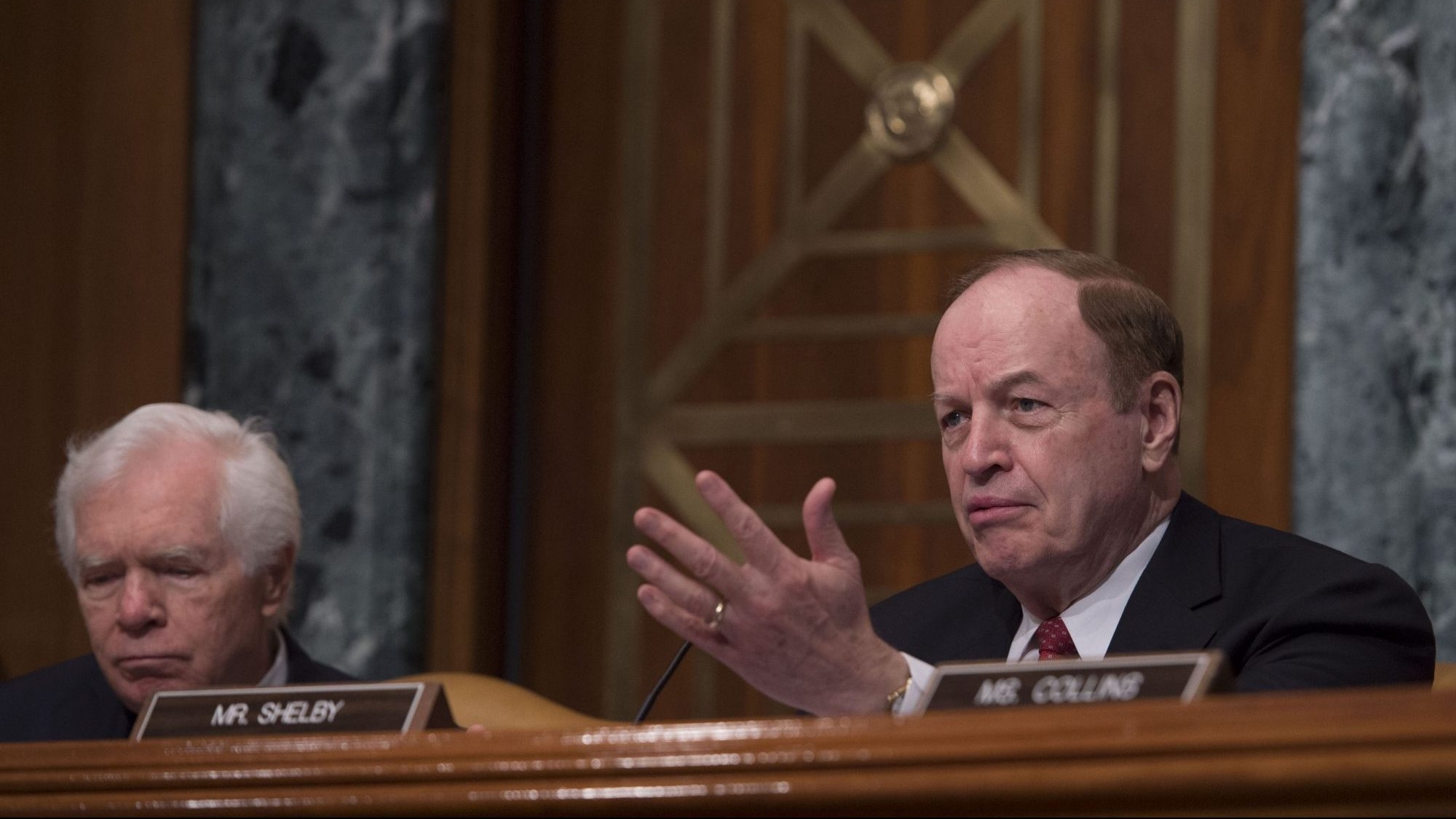U.S. Senator Richard Shelby (R-Alabama) announced that 15 community health centers located in Alabama have received a total of $4,038,000 in federal grant funding from the U.S. Department of Health and Human Services (HHS) to support increased treatment and prevention for opioid and substance abuse.
“It is of the utmost importance that we work to fund the fight against the national opioid crisis,” said Senator Shelby. “Nearly every county in Alabama is affected by this growing problem. These HHS grants will allow community health centers across the state to provide treatment to patients with opioid and substance abuse and support addiction prevention programs, helping our communities tackle this widespread epidemic.”
The grants were awarded to community health centers in: Bayou La Batre, Birmingham, Centreville, Gadsden, Huntsville, Mobile, Montgomery, Parrish, Selma, Scottsboro, Troy, and Tuscaloosa.
64,000 Americans were killed from drug overdoses in 2016, more than were killed in a decade of fighting in the Vietnam War. More than 300,000 Americans have been killed by opioids since 2000. In 2016 more than 20.1 million Americans were addicted to prescription painkillers and/or illicit opioids.
Responding to the unprecedented drug crisis has been a priority of the administration of President Donald J. Trump (R).
“We are already distributing nearly $1 billion in grants for addiction prevention and treatment, and more than $50 million to support law enforcement programs that assist those facing prison and facing addiction,” the President said. “We have also launched an $81 million partnership to research better pain management techniques for our incredible veterans.”
The President’s proposed Federal Budget requested $3 billion in new funding in 2018 and $10 billion in 2019 for the Department of Health and Human Services (HHS) to combat the opioid epidemic by expanding access to prevention, treatment, and recovery support services. The funding would also go toward addressing mental health concerns.
On September 19, HHS awarded nearly $352 million to 1,232 community health centers across the nation, including the 15 in Alabama, through the Expanding Access to Quality Substance Use Disorder and Mental Health Services (SUD-MH) awards. The SUD-MH awards support health centers in implementing and advancing evidence-based strategies that best meet the substance use disorder and mental health needs of the populations they serve.
The following 15 community health centers in Alabama will receive the $4,038,000 in grant funding:
- Bayou La Batre Area Health Development Board, Inc., Bayou La Batre – $285,000
- Christ Health Center, Inc., Birmingham – $285,000
- Alabama Regional Medical Services, Birmingham – $285,000
- Aletheia House, Inc., Birmingham – $201,750
- Cahaba Medical Care Foundation, Centreville – $296,000
- Quality of Life Services, Inc., Gadsden – $293,000
- Central North Alabama Health, Huntsville – $285,000
- Health Services, Inc., Montgomery – $285,000
- Franklin Primary Health Center, Inc., Mobile – $285,000
- Mobile County Health Department, Mobile – $285,000
- Capstone Rural Health Center, Parrish – $287,250
- Rural Health Medical Program, Inc., Selma – $285,000
- Northeast Alabama Health Services, Inc., Scottsboro – $110,000
- S.E. Alabama Rural Health Associates, Troy – $285,000
- Whatley Health Services, Inc., Tuscaloosa – $285,000
“Addressing the opioid crisis with all the resources possible and the best science we have is a top priority for President Trump and for everyone at HHS,” said HHS Secretary Alex Azar. “The more than $1 billion in additional funding that we provided this week will build on progress we have seen in tackling this epidemic through empowering communities and families on the frontlines.”
“This week, HHS updated its strategic framework for tackling the opioid crisis, which uses science as a foundation for our comprehensive strategy,” said Admiral Brett Giroir, Assistant Secretary for Health and Senior Advisor for Opioid Policy. “With these new funds, states, tribes, and communities across America will be able to advance our strategy and continue making progress against this crisis.”
Earlier this week, Senator Shelby voted to pass “The Opioid Crisis Response Act of 2018,” which was a bipartisan effort of over 70 U.S. Senators and includes proposals from the Senate Committees on: Health, Education, Labor, and Pensions; Finance; Judiciary; Commerce, Science, and Transportation; and Banking, Housing, and Urban Affairs.
The legislation would improve detection of illegal drugs at the border, improves the sharing of Prescription Drug Monitoring Programs data between states, and aims to reduce the use and supply of dangerous drugs.
Senator Richard Shelby is the Chairman of the powerful Senate Appropriations Committee.





















































